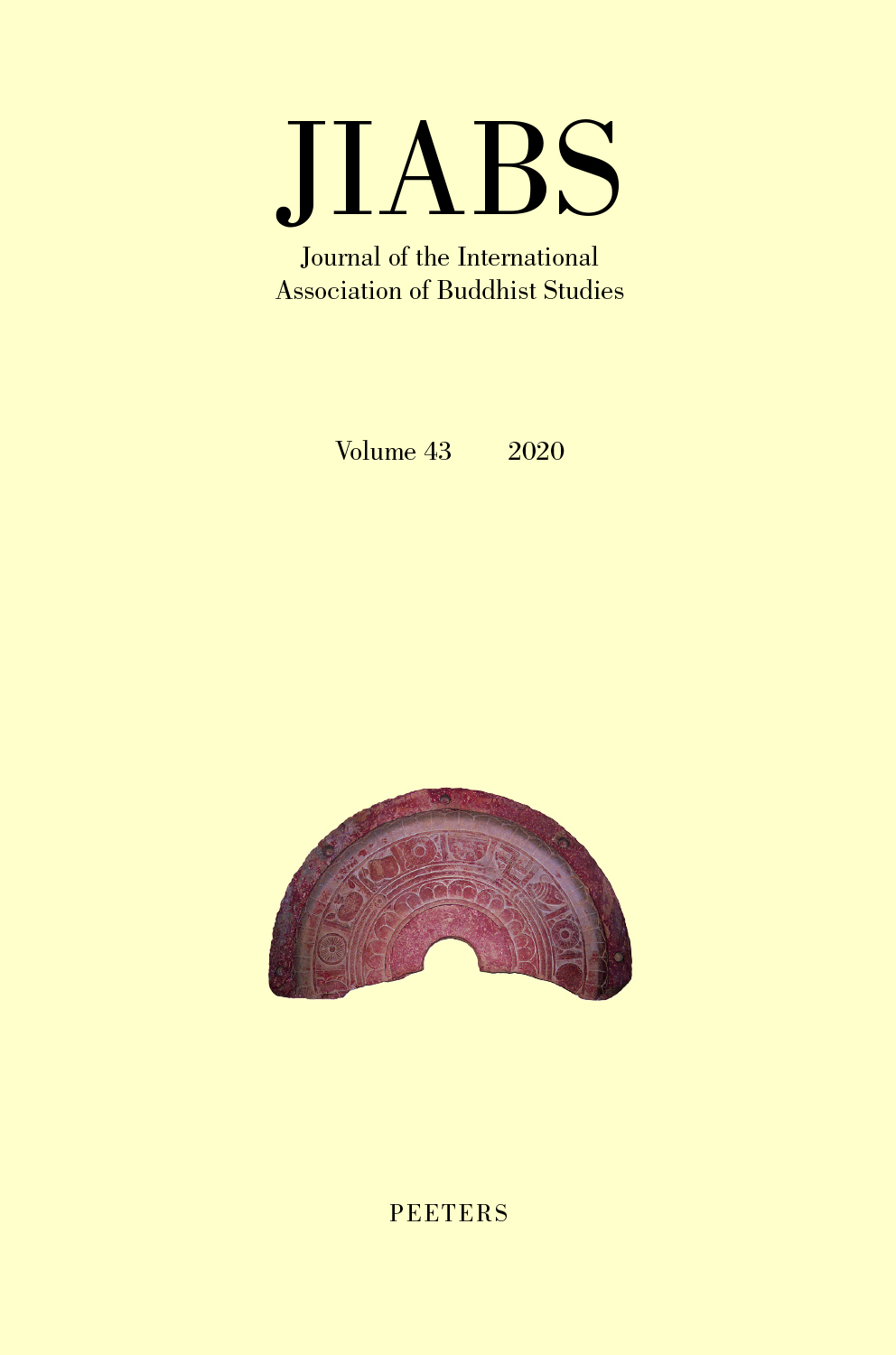 previous article in this issue previous article in this issue | next article in this issue  |

Preview first page |
Document Details : Title: The Scope of Ambiguity in the Yogācāra Three Natures Doctrine Author(s): NICHOLSON, Hugh Journal: Journal of the International Association of Buddhist Studies Volume: 46 Date: 2023 Pages: 323-359 DOI: 10.2143/JIABS.46.0.3293165 Abstract : In this paper I argue that the interpretive disagreement between the so-called pivotal and progressive interpretations of the Yogācāra Doctrine of the Three Natures (trisvabhāva) can be traced back to an indeterminacy with respect to the relationship between reality and mental construction in the Tattvārtha Chapter of the Bodhisattvabhūmi. The view that mental construction (vikalpa) is adventitious to reality (vastu) corresponds to the pivotal model, according to which the Perfected Nature simply names Dependent Nature stripped of the falsifying constructions that comprise the Imagined Nature. Conversely, to the extent that mental construction conditions reality, a gap opens up between the thing (vastu) serving as the basis of predication and the thing as such (vastu-mātra) that is unconditioned by mental construction. This latter view corresponds to a progressive model of the three natures, according to which a cessation of mental construction results in the cessation of the conditioned reality corresponding to the Dependent Nature. Inasmuch as this ambiguity is found at the very origins of the Three Natures doctrine, one cannot say that either of these interpretations, and not the other, represents a putative original or authentic intention of the doctrine. |
 |


